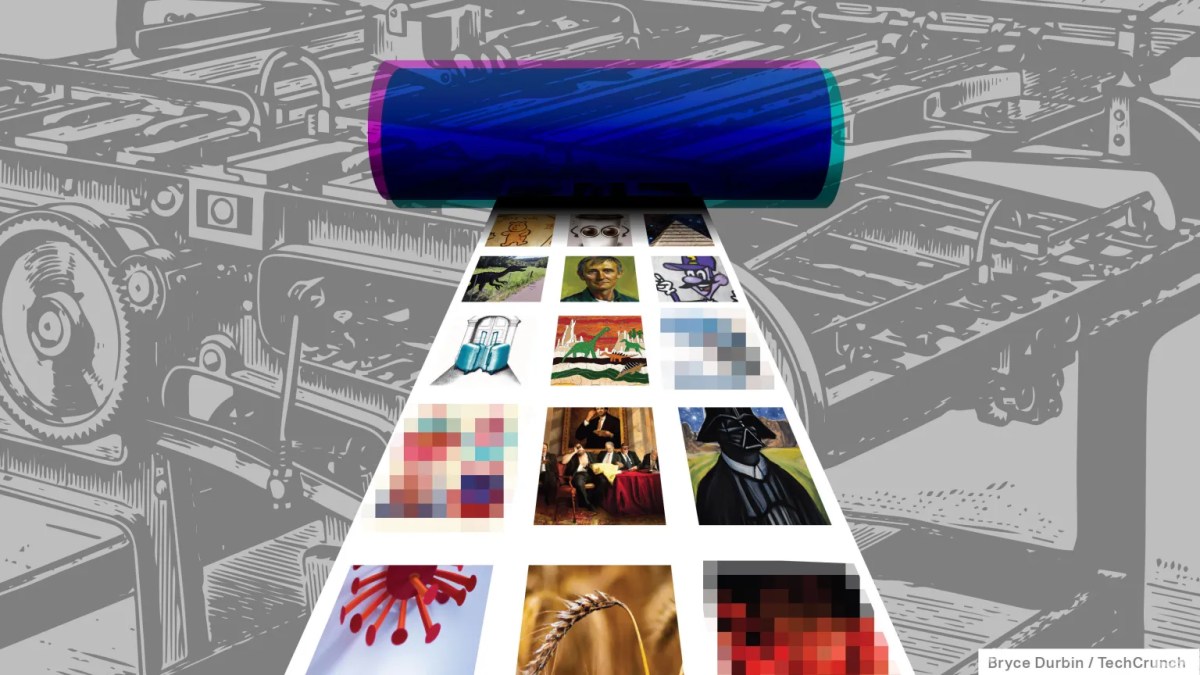Fal.ai, a dev-focused platform for AI-generated audio, video, and images, today revealed that it’s raised $23 million in funding from investors including Andreessen Horowitz (a16z), Black Forest Labs co-founder Robin Rombach, and Perplexity CEO Aravind Srinivas.
It’s a two-round deal. $14 million of Fal’s total came from a Series A tranche led by Kindred Ventures. The remaining $9 million is from a previously-unannounced, a16z-led seed round.
Burkay Gur and Gorkem Yurtseven co-launched Fal (short for “Features and labels”) in 2021. Gur previously worked at Amazon as a software dev, while Yurtseven, an ex-Oracle engineer, led machine learning development at Coinbase for several years.
While hacking together side projects during the pandemic, Gur and Yurtseven, longtime friends, realized the growing demand for AI cloud infrastructure — particularly infrastructure to run generative AI models.
“The big bet was that the nascent space of generative media was about to change all media consumed,” Gur told TechCrunch. “The timing worked out perfectly, because there were some breakthrough models that were released right after Fal started.”
Fal offers two products: privately managed compute and workflows for running models, and APIs for open source models that generate images, audio, and video. Fal was one of the first platforms to host Black Forest Labs’ Flux, the model powering image generation in Grok, X’s controversial chatbot.
Many cloud rivals like CoreWeave provide resources along these same lines. But what makes Fal different is its scalability, Gur argues.
“Our platform can handle hundreds of millions of requests [and our] own inference engine is the most performant,” he said. “Using Fal, you can integrate models into your applications — the product is for enterprises that have media at the core of what they do.”
Whether those claims hold up to scrutiny or not, Fal has managed to grow an impressive customer roster. In addition to Perplexity (which explains Srinivas’ investment) and enterprise customers in the retail and e-commerce sector, popular generative AI apps Photoroom, Freepik, and PlayHT are all paying for Fal’s services, Gur says.
It’s a profitable bunch. A source tells TechCrunch that Fal’s annual run rate has climbed to nearly $10 million (~$800,000 per month), up around 10x from January. The Series A valued the startup at $80 million.
“Fal has reached 500,000 developers on the platform,” Gur said, “generating 50 million images, videos, or audio streams a day.”
Given the many deepfake and misinformation risks around generative technologies, I asked Gur if Fal has moderation policies or filters in place for sensitive content. He said that Fal prefers to take a hands-off approach, leaving the decision whether to implement safety features up to the companies developing models on Fal’s platform.
“For moderation, a lot of what is done happens during training, so we leave that to the companies building the models,” Gur said. “As you might guess, having a very robust program requires more research and resources.”
It’s a bit of an empty answer, given that Fal sponsors some open source training efforts under its research grants program. One would assume that Fal has a say in the development of models it funds.
Gur did suggest, however, that Fal is looking to undertake some de-toxifying efforts itself… at some point. “We do have plans to do more of this in-house, and rely on some vendors specialized in this type of work,” he said.
I asked about IP liability, as well. Should the models on Fal’s platform regurgitate any copyrighted data, will the company protect customers if they’re sued? Gur wouldn’t answer. But the language in Fal’s terms of service imply that customers are on their own.
That’s in contrast to generative AI products from Adobe, Canva, Google, Microsoft, and Shutterstock, all of which have indemnity clauses (albeit with some carve-outs). Vendors like Getty Images, as well as startups such as Fairly Trained, have gone so far as to train models only on “commercially safe” content to avoid the threat of copyright lawsuits altogether.
That’s all to say, those who use Fal assume some risk.
Fal intends to spend the bulk of the capital it’s raised so far on upgrading its inference optimization product to make it self-serve. The company is also establishing a research team that’ll focus on model optimizations and will join Fal’s 17-person staff.
Fal’s other backers include Vercel founder Guillermo Rauch, entrepreneur and investor Balaji Srinivasan, and Hugging Face CTO Julien Chaumond.

